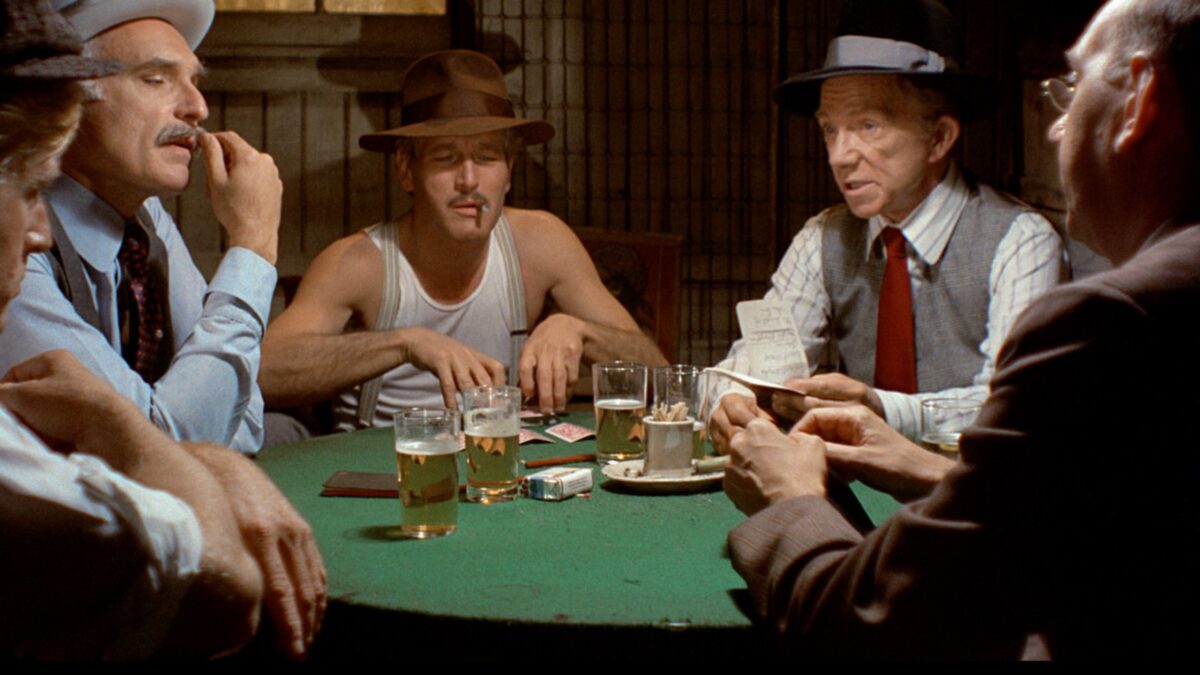Read any beginner’s poker book. Early in the text, right after the ranking of poker hands, you’re likely to see the age-old rule against drinking alcohol while playing poker. You’ll be warned about demon rum and its deleterious effect on your game. You’ll be soberly advised not to imitate the scenes out of the old Westerns, where the seasoned cowboy swigs some red eye while playing yet another hand of 5-card draw. “Don’t be like that” you’ll be told.

To be sure, there are many good reasons to follow this basic rule. Alcohol, in all its forms, is a sedative. It interferes with your best judgment, unleashes your emotions, makes you tired, and, in general, hinders your ability to play your best game. For some, alcohol is also dangerously addictive.
Because of this, it wouldn’t be wrong for many people — poker players or otherwise — to avoid alcohol altogether.
That said, it’s also true that some poker rules are meant to be broken, at least occasionally. And here’s why this one, about staying booze-free at the table, has its exceptions:
You don’t want to look too serious
Let’s say you’ve been invited to a home game. It’s a $1/2 game with no cap on the buy-in — a casual affair set up by some friends from work.
Things are just getting started as you arrive, with just taking their seats. There’s a grill going, people are having a great time, and the host asks if you’d like a beer or something harder as he points you to a cooler and motions to a bar. Sure enough, all of the other players are either sipping a cocktail or have a beer in front of them at the table.
In this situation, it would be best if you had a beer, too, unless, of course, you’re an alcoholic, pregnant, or have some other personal reason for abstaining. So long as it’s not just because you’re playing poker.
The idea is to fit in. You don’t want to appear to take the game too seriously. If you ask if there’s a Red Bull, coffee, or water, you run the risk of drawing attention to yourself – something you don’t want to do in this extremely casual place.
This is especially true because your style of play and expertise (and probably results) will already tend to set you apart and alert people to your poker skill. It’s not so much that you want these folks all to become your friend. But by seeming to take the game so seriously that you’re not willing to drink with everyone else — again, not including recovering alcoholics, pregnant people, or conscientious abstainers — you increase the chance that your opponents will adopt a more serious or cautious style of play around you.
I know many players who have developed the skill of nursing a beer. They hardly consume much alcohol at all, but don’t look like they are trying to avoid it. That’s the key.
Setting a tone of looseness
Just as alcohol tends to be a lubricant for conversation by lowering inhibitions, it also tends to be a catalyst for gambling as alcohol often erodes a player’s plans to be strategic and careful in their approach to the game. While imbibing alcohol may not be good for your game, it’s often very good for the game itself.
I’ve found that ordering a drink myself can encourage others to do the same. Especially at my own home game, if I have a drink it tends to give others a green light to ask what’s on tap. On the other hand, if I start out with a seltzer, water, coffee, or some energy drink, some of my more observant guests are likely to follow my lead — and instead of a loose and friendly game, we’re in for an all-night nit-fest.
I’ve even heard visiting players say to me, when I’ve popped open a Sam Adams, “as long as you’re drinking, I’ll have something too.” Similarly, upon noticing my non-alcoholic beverage, they have commented, “Oh, it’s one of those kinds of games” as they eschewed the freely offered alcoholic beverages to grab water instead.
Your goal here isn’t to encourage your friends and competitors to get wasted and lose all sense of reason. But if you can help foster a friendlier, looser atmosphere at the table, that’s the sort of environment that has players wanting to come back regardless of whether they win or lose.
So help set a tone for gambling, maybe a little more than usual. It’s a friendly game of poker, sure, but doesn’t mean you don’t want to come out ahead at the end of the night.
Last call
If, for biological, sociological, or religious reasons you’re a teetotaler, far be it for me to encourage you to take up a new addiction. But if you refrain from alcohol for strategic reasons, or because you’re concerned that alcohol will have a negative effect on your best poker game, let me suggest that there are times when you can loosen up. I’m not saying you should start pounding them down. But a little “bottom’s up” may help your bottom line.


